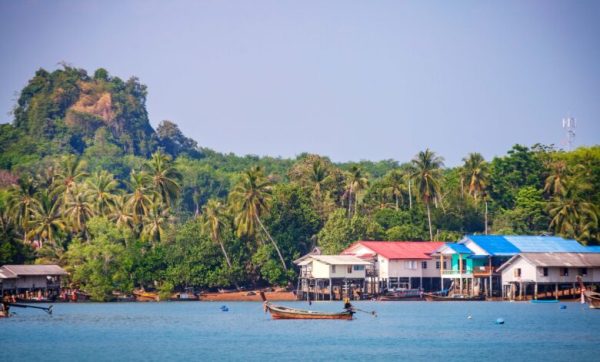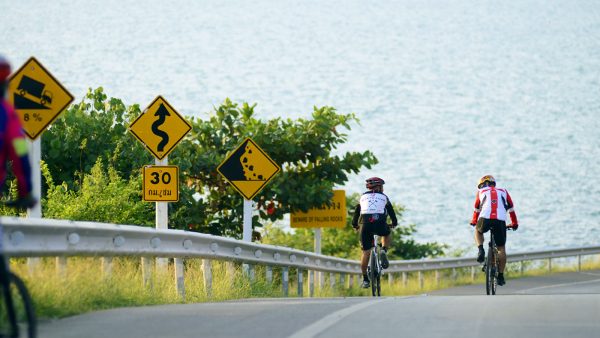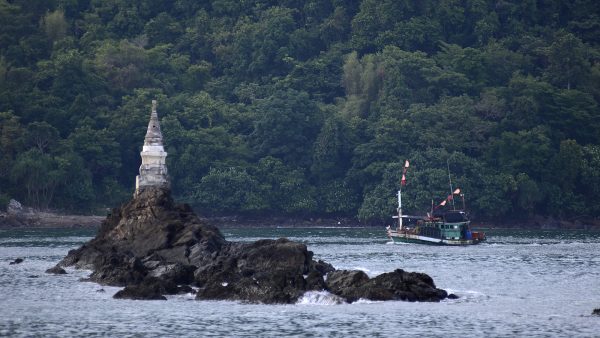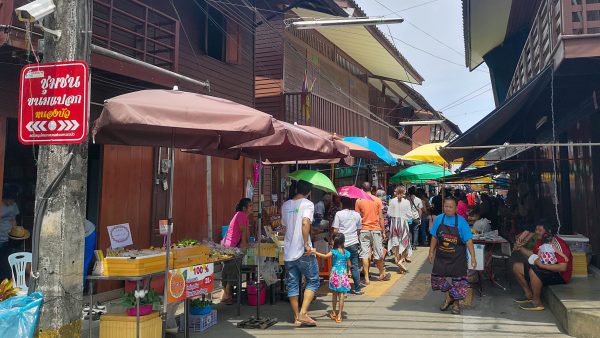BANGKOK, 2 August 2024: The Tourism Authority of Thailand presents five low-carbon travel routes with eco-friendly CF-Hotels accommodation, reminding travellers that “saving the world” is now a top priority when deciding where to go and where to stay.
Here is a cut-down summary of the five low-carbon travel routes in Thailand, coupled with hotels that are members of the CF-hotels platform and committed to reducing greenhouse gas emissions.

For the full report visit: https://www.tatnews.org/2024/07/five-low-carbon-travel-routes-with-eco-friendly-cf-hotels-accommodation/
Unique tastes of the East Chanthaburi
Enjoy the taste of East Chanthaburi, a three-and-a-half-hour drive southeast of Bangkok. This is an ideal destination for anyone seeking a culinary adventure. The distinctive specialities of the province derive from its forests, orchards, and thriving sea and vary from season to season.
The unique “taste of Chanthaburi” is showcased in its fresh seafood, tropical fruit like salak (snake fruit) and durian, tasty ta dam shrimp paste, and local herbs like ginger, raew hom (bustard cardamom), sour chamuang leaves and pepper. The distinctive specialities of the province, derived from forests, orchards and sea, vary from season to season.
Stay: The ideal base for your gourmet trip is The Motifs Eco Hotel. Opened just three years ago, this hotel has risen rapidly in popularity thanks to its serious environmental credentials from the very beginning. The hotel’s eco-friendly strategy is driven by co-founder Ireelda Jirachokchayanant’s love for the environment. She spends her leisure time hiking and learning about nature, so when she got the opportunity to open a hotel, she leapt at the chance to make sustainability its core business ethos.


Rainforest adventure in west Thailand
In the lush forests of Kanchanaburi, travellers can replay the history of the Death Railway built by World War II POWs. Trips to Kanchanaburi feature refreshments at the many waterfalls or boarding a raft for a sail downstream on the River Kwai. Those wishing to push themselves further can opt for a multi-activity adventure involving rafting, trekking, and exploring the province’s awe-inspiring caves.
Stay: Amateur adventurers will find all their needs well catered to at The Legacy River Kwai Resort, an eco-friendly hotel offering a variety of carbon-free activities like SUP boarding, rafting, and biking. Accommodation at this 300-rai resort comes in the form of log cabins or camping in nature’s embrace beneath the shade of over 4,600 trees along the riverbank. The resort also offers farm tours to give visitors a first-hand experience of 360-degree sustainability practices and forest bathing to heal the mind.

Explore Lanna’s vibes and ways of nature
Chiang Mai is still the most popular tourist destination in the North of Thailand thanks to beautiful watershed forests and an ancient Lanna culture that has been preserved from generation to generation. The old capital’s special charm lies in its blend of urban lifestyle, traditional culture, and rich nature.
Stay: Accommodation in Chiang Mai comes in many forms and prices to match pretty much every lifestyle and budget. A CF-Hotels member IMM Hotel Tha Pae is tapping the increasingly eco-conscious travel market with its commitment to cutting energy use and greenhouse gas emissions. The city hotel has initiated various practices to ensure energy resources like electricity, fuel, and cooking gas are used in the most cost-effective and efficient ways for long-term sustainability. Guests can also take a low-carbon cycling tour run by the Co Van Kessel team to experience Chiang Mai like a local.
Explore the green heart of Phang Nga
Along with silver-sand beaches, myriad islands and a beautiful underwater realm, the southern seaside province of Phang Nga also boasts an equatorial forest as the perfect foil for its turquoise sea. A visit to Phang Nga during the green season reveals a refreshing idyll of nature in harmony with local traditions.
The highlight is Ko Yao Noi, a small island in the Andaman Sea that graces Thailand’s growing list of eco-friendly destinations. Life here is lived slowly, with locals observing sustainable practices ranging from pesticide-free rice farming to preserving the forest.
Stay: Ko Yao Noi offers homestays and luxury resorts that blend seamlessly with their natural surroundings. Nestled deep in a forest at the northern tip of the island, Paradise Kohyao Resort offers both pool villas and studios to choose from. Here, conservation and tourism go hand in hand, highlighted by hornbills whose existence is an important indicator of a healthy ecosystem in Ko Yao Noi. The resort has set up the Hornbills Watch Project, which offers guests precious opportunities to get up close and personal with these giant birds of paradise.
Hua Hin: a resort city brimming with character
The seaside resort town of Hua Hin has retained its charm over the decades and remains a popular destination just under a three-hour drive from Bangkok. No wonder its beaches are beautiful, and the town is conveniently close to major attractions like Cha-Am, Pran Buri, and Sam Roi Yot. Add the huge variety of global cuisines, plus fascinating communities for off-the-beaten-track trips, and Hua Hin is still a great destination for a weekend retreat.
Stay: There’s an abundance of beachside accommodation in Hua Hin, ranging from small boutique hotels to pool villas and bungalows. This is for environmentally aware travellers in search of resorts on the CF-Hotels platform.
Baan Talay Dao offers modern Thai vibes in a lush green ambience shaded by makham (tamarind), tabaek (guava crape myrtle), tako (ebony bark), payom (Shorea roxburghi), peeb (Indian cork) and hang nok yoong (flame) trees. The restaurant sources fresh ingredients from the onsite organic vegetable garden, Suan Rak Talay.
For more information on CF-Hotel members visit TAT’s site: https://cf-hotels.com/ (Thai language).
(SOURCE; Tourism Authority of Thailand).






